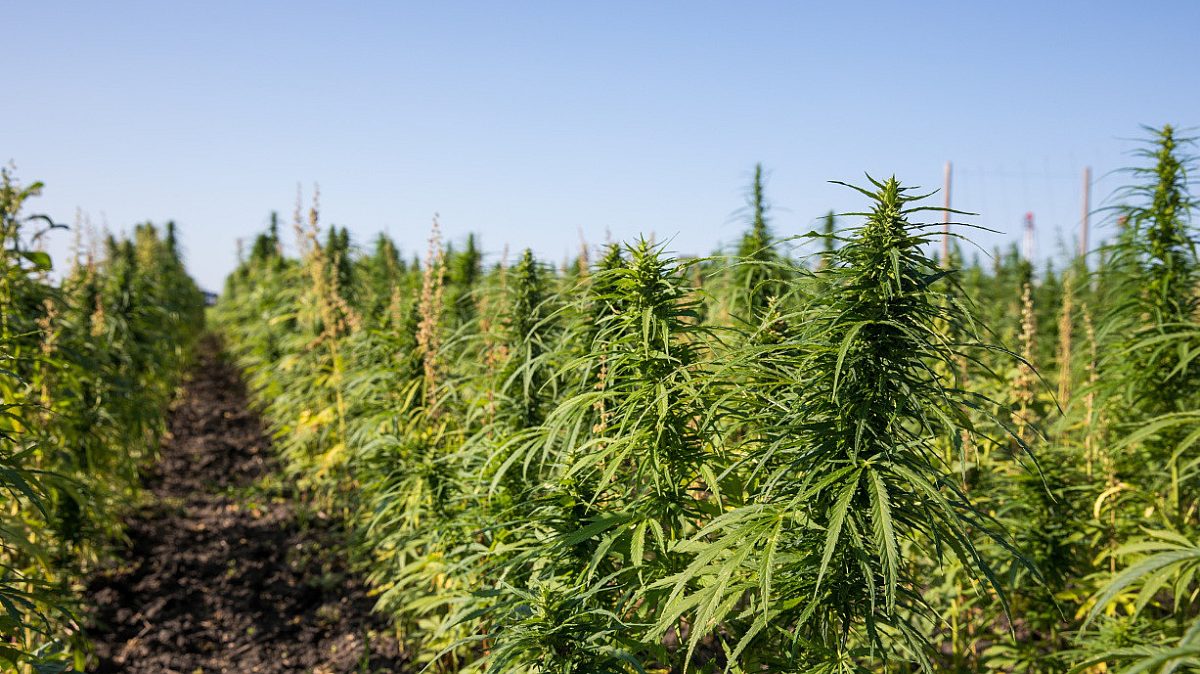Hemp Holds Promise for Farmers
TOPICS
HempGuest Author
Special Contributor to FB.org

photo credit: AFBF Photo, Philip Gerlach
Guest Author
Special Contributor to FB.org
By Scott Bennett @scottrbenn
If you visited a gas station or convenience store in 2019, you likely noticed the sale of CBD or cannabidiol and other industrial hemp-derived products. Touted by marketers as having a range of body and mind benefits, Americans have flocked to these products. But what is CBD, why now and is it even legal?
In December 2018, President Trump signed into law the 2018 farm bill, which included provisions making hemp legal for farmers to grow and sell. The initiative in the farm bill was pioneered by Senate Majority Leader Mitch McConnell of Kentucky, the state that is leading the country in the development of this industry. Not to be confused with its cousin marijuana, hemp by definition must not contain more than 0.3% of the psychoactive compound tetrahydrocannabinol (THC) on a dry matter basis.
As farmers look to diversify and make money through new markets, many have incorporated hemp into their farms and many more are evaluating its prospects.
As farmers look to diversify and make money through new markets, many have incorporated hemp into their farms and many more are evaluating its prospects. According to the Agriculture Department’s Farm Service Agency, farmers planted 128,000 hemp acres in 2019. Compare that to only 25,000 acres in 2017, when hemp could only be grown for research purposes.
Now, back to CBD. It’s sold seemingly everywhere, but is it legal? It’s complicated.
Purchasing CBD is federally legal as long as it doesn’t contain more than 0.3% THC, but some states have cracked down with restrictions.
For example, the Food and Drug Administration has prohibited the sale of CBD in any unapproved health product, dietary supplement or food. But these federal provisions have a loophole that permits a store to sell an unlimited amount of CBD products, as long it doesn’t make any health claims, put it in food or add it to dietary supplements. The FDA is working to define how it will regulate CBD, but don’t expect that to happen anytime soon. The process can take years.
Why does Farm Bureau care? As it currently stands, CBD is the price driver for hemp. Farmers across the country are interested in growing this new crop, both for its fiber applications to produce, rope, clothing, shoes, paper and building materials, and for CBD products. If CBD regulation becomes too onerous or complicated, we could very well lose a significant portion of the overall hemp market, driving down demand – and prices – for hemp. While there are risks and many unknowns in the cultivation and harvest of hemp, farmers are clearly interested in its potential, and understandably so as they stand to gain, provided FDA takes a reasonable approach to regulating CBD. Farm Bureau will continue to work diligently on all aspects of policy that potentially benefit America’s great farmers and rural communities.
Scott Bennett is director of congressional relations at the American Farm Bureau Federation. At the end of September, AFBF and the National Industrial Hemp Council asked the Environmental